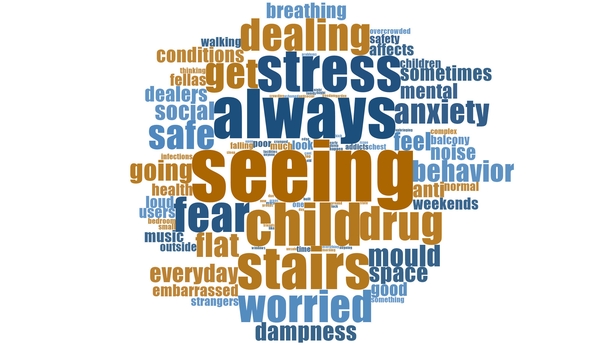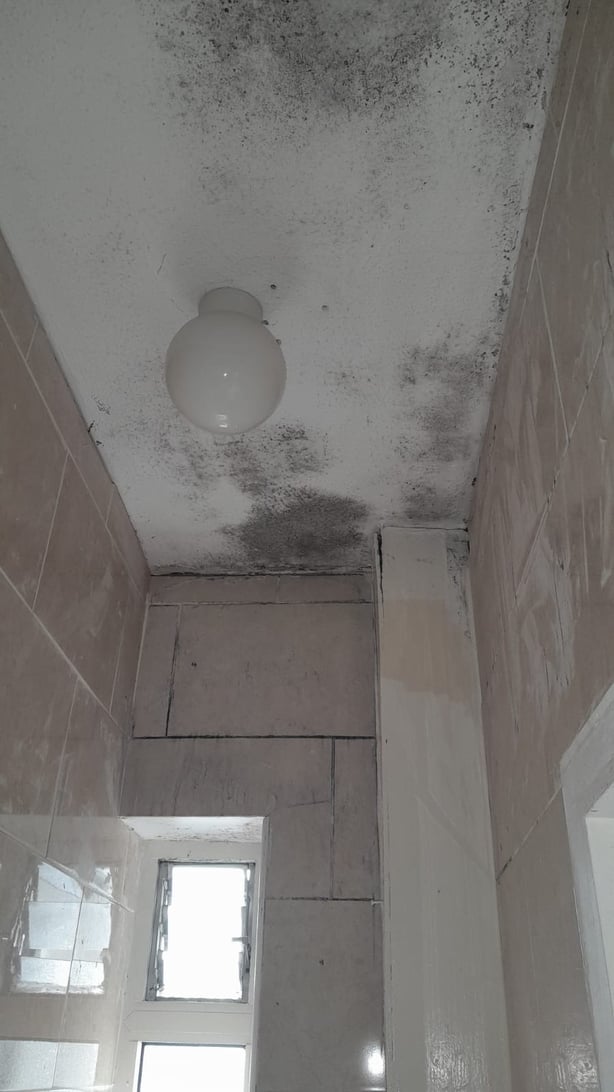Analysis: research carried out in Dublin's Oliver Bond flats highlights the affects of inadequate social housing on health and everyday life
Inadequate housing provision has emerged as a major determinant of health and a social justice and human rights issue. Poor quality housing is a key concern for many residents in social housing communities, where it is estimated that the vast majority are living in overcrowded homes with dampness, mould, cold and pests. The situation has been aggravated by the Covid-19 pandemic. Emerging research from the EU Marie Skłodowska-Curie project CITY-OF-CARE illuminates the health impacts of inadequate housing, particularly public and social housing, where the most vulnerable people live.
The project focused on comparing the Liberties in the southwest of Dublin and Calvairate in the southeast of Milan, both historically known for their extensive social housing estates. Through comprehensive social research conducted in Dublin's inner-city Oliver Bond flats, as highlighted in a recent co-authored article with Dr Hannah Grove from the University of Oxford, we uncovered the health impacts of inadequate social housing.
Housing and urban policies have systematically stripped away care, funneling the most vulnerable towards and trapping them in substandard living conditions. In Dublin, the "City of Care" project looked at the advocacy journey of the Oliver Bond community for the equitable regeneration of their social housing estate, which included a 'Sick of Waiting’ media campaign.
We need your consent to load this rte-player contentWe use rte-player to manage extra content that can set cookies on your device and collect data about your activity. Please review their details and accept them to load the content.Manage Preferences
From RTÉ News, Dublin residents campaign for better housing conditions
The health impacts of inadequate social housing in Oliver Bond
In our research, residents expressed four key concerns: (i) substandard housing conditions that are physically harmful to health, (ii) the emotional toll of an unsafe social environment, (iii) lack of child-friendly and community green spaces, and (iv) constrained mobility due to inaccessible housing design.
Participants were asked if their living conditions impacted the health of their families. Almost two-thirds (65%) of the residents answered yes to this question. The image below shows a word cloud of the open-ended written responses provided by 100 residents, summarising how inadequate housing significantly affects health and well-being.
Phrases like "stress," "anxiety," and "fear" underscore the emotional toll, while "safety" and "affects" signify concerns about security. "Health" and "dampness" link housing to physical health problems. "Child" and "behaviour" suggest children are especially affected. Words such as "always," "everyday," and "sometimes" convey the daily struggle, including issues like "noise" and "mould." The mention of "dealers" hints at potential community-related problems stemming from inadequate housing.

73% reported poor housing standards and 52.9% reported overcrowding, damp, humidity or mould issues in their home.
"[My] children [have] constant infections and chest problems"
"Mould affects my breathing"
"Poor ventilation and mould not good for breathing"
"Mould and damp get chest infections"
Another key concern among participants was related to safety concerns. 73.5% of residents had concerns about community safety and 60.8% were concerned about substance misuse outside their homes
Several participants were fearful about the crime and anti-social practices their children were observing and experiencing as well as the normalisation of this:
"Constantly worried about what my child [is] seeing, thinking it's normal"
"Kids have to see drugs all the time"
"My kids see too much [of] what happening in the flats, they [are] selling drugs in front of the kids"
Oliver Bond residents commonly reported the emotional and mental health tolls brought about by these challenges. They identified the stress, fear, worry, depression, and anxiety caused and exacerbated by inadequate housing conditions and persistent safety concerns.
What was particularly striking about what residents had to say was the language used to describe the relentlessness of these challenges. The words "constant" and "always" were repeatedly mentioned when describing concerns. Many participants reported that they were on guard, on the edge, or waiting for something bad to happen, highlighting that many residents are in a constant state of stress or anxiety and are unable to relax in their homes.

Addressing the health impact and policy landscape
To address the health impact of inadequate housing, it is imperative that our housing policy comprehensively recognises the profound health determinants associated with housing and seamlessly integrates housing and health.
Results demonstrate the need for public housing policy which ensures long-term strategic engagement between housing and health improvement sectors and the need to adopt a ‘City of Care’ approach, which emphasises the significance of social capital developed by public housing residents, affordable/adequate housing and community infrastructure. Placing ethics of care at the heart of all policies will ensure that public health and social justice are at the forefront.
The imperative of embedding an ethics of care in policy
There are hopeful indications that Dublin City Council forges connections among housing, health, well-being, and community development within the policy landscape. A workshop conducted in Dublin in 2022, underscored the collaborative approach of the City of Care.
But the vital issue remains the same. Without the embedding of an ethics of care, as exemplified by this research, or the incorporation of health into housing policy, it's unlikely that the health and well-being of residents will take precedence through the urgent restoration and sustainability of social housing quality.
The views expressed here are those of the author and do not represent or reflect the views of RTÉ



